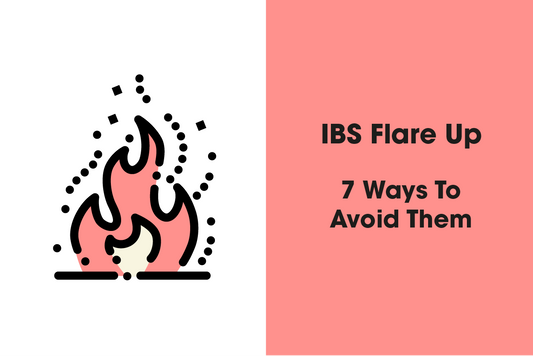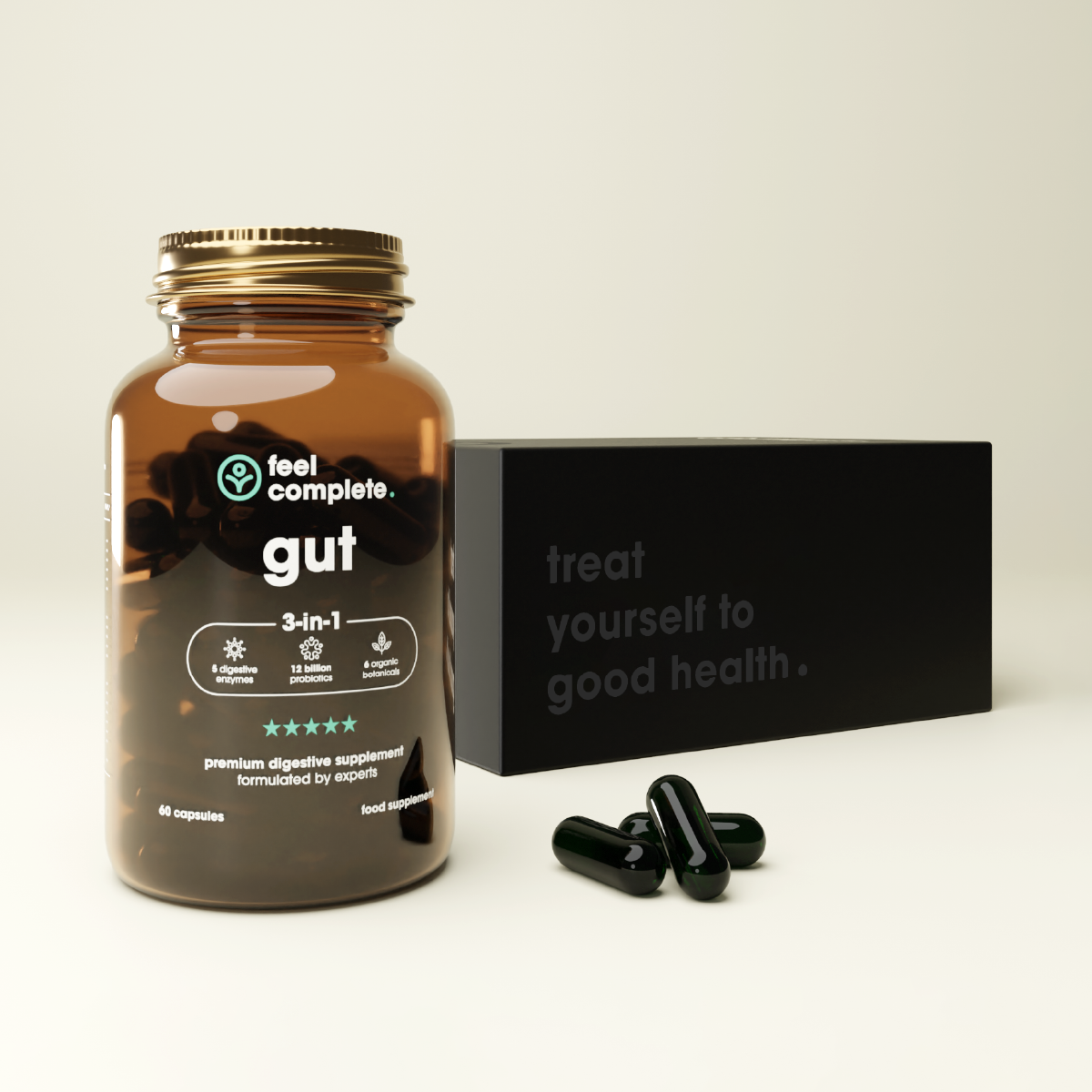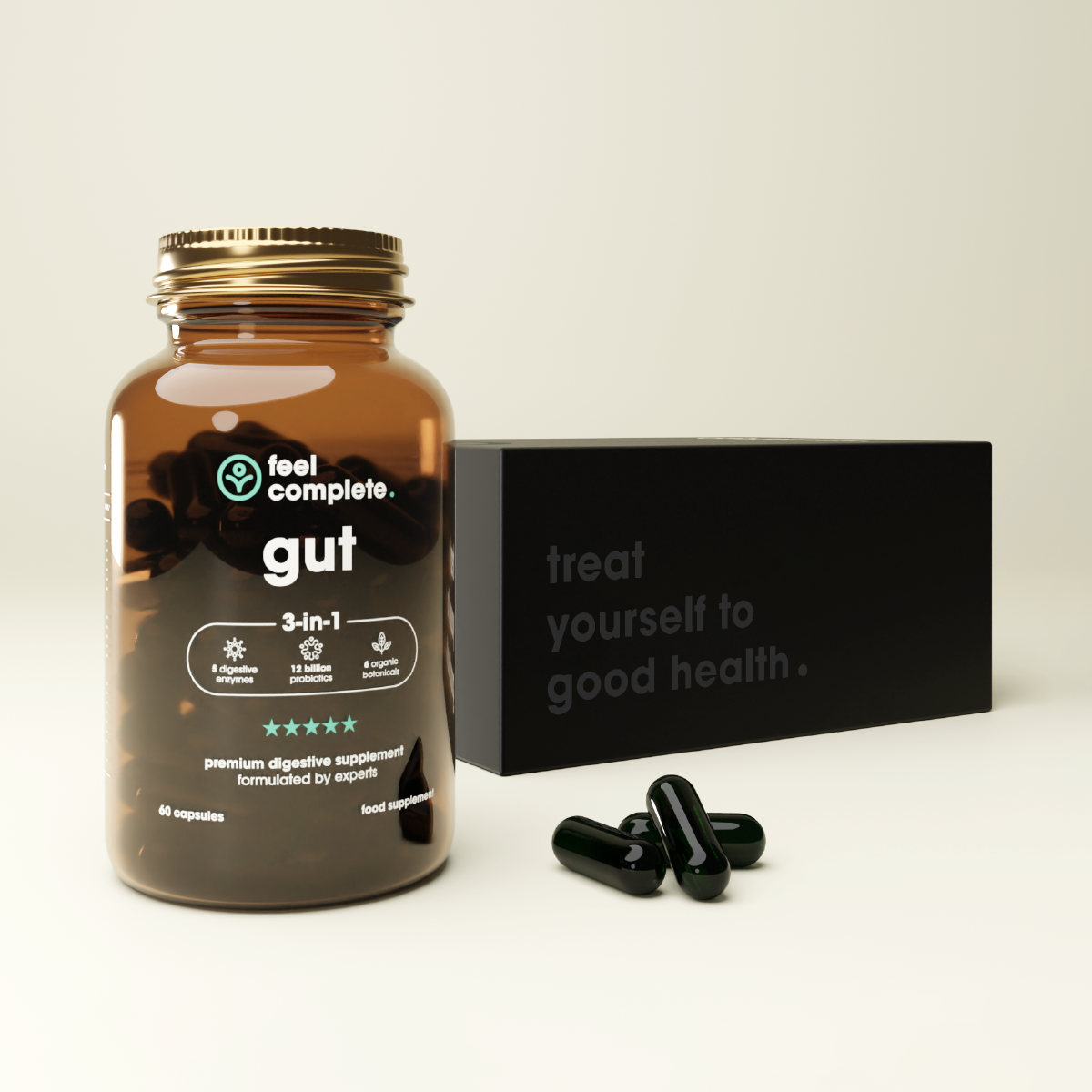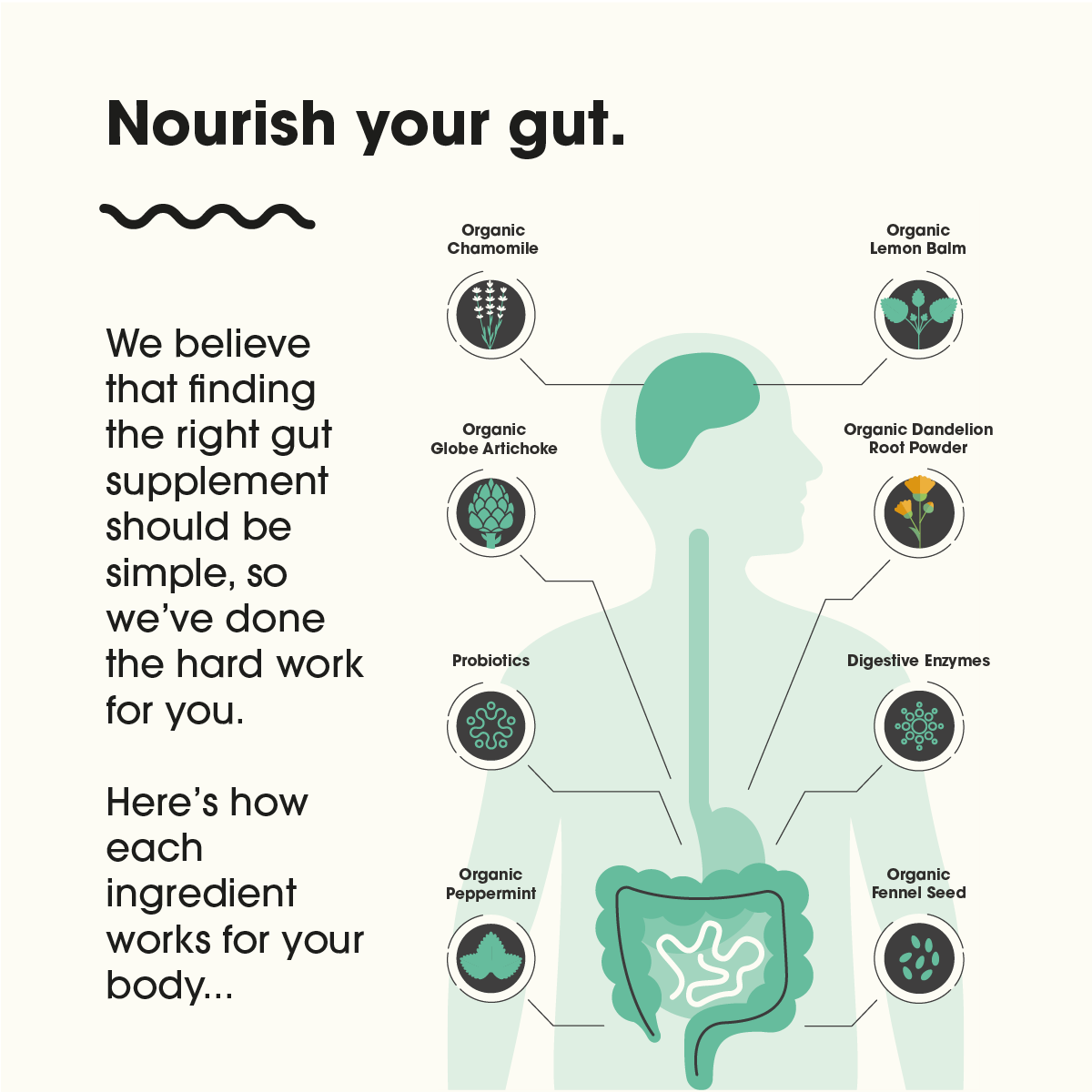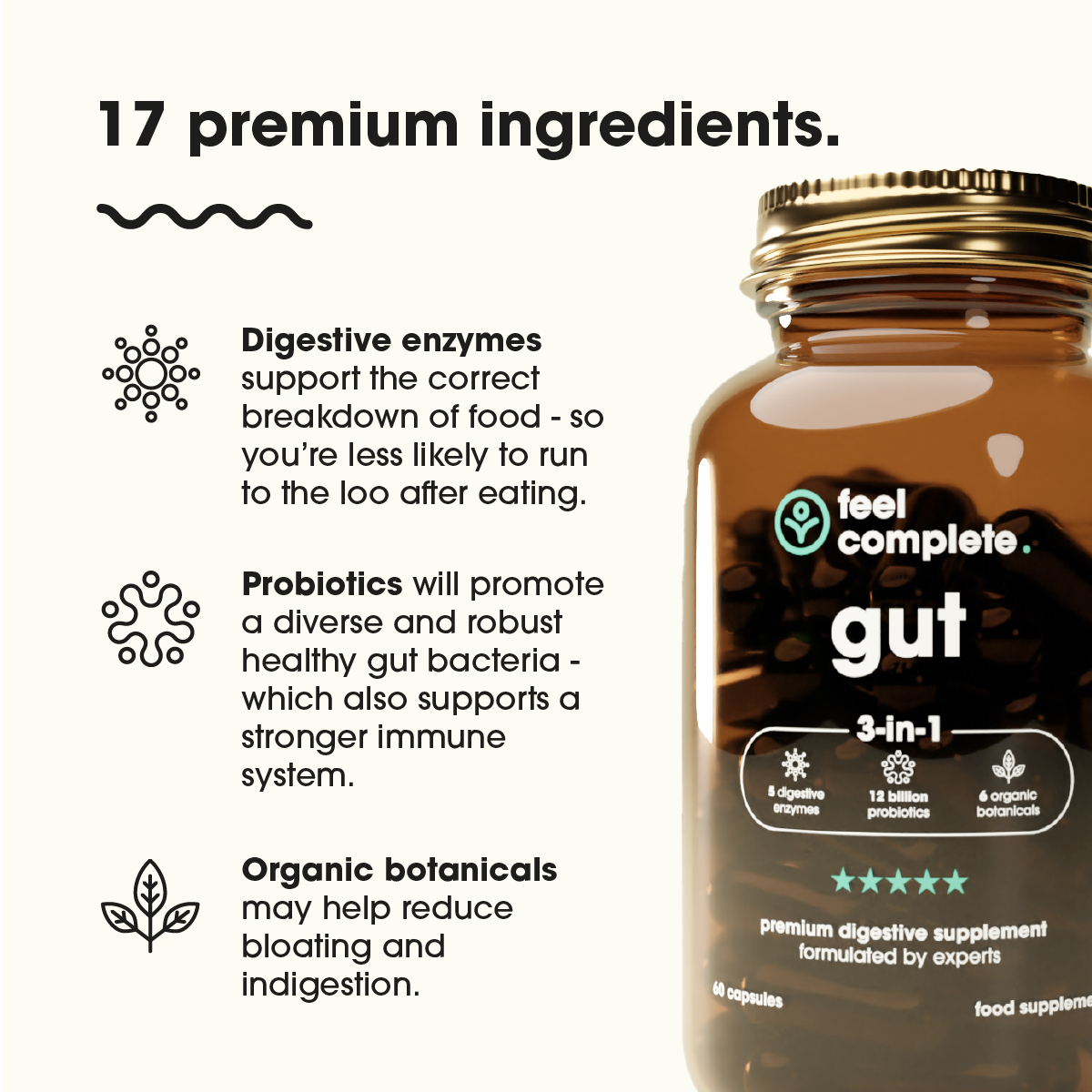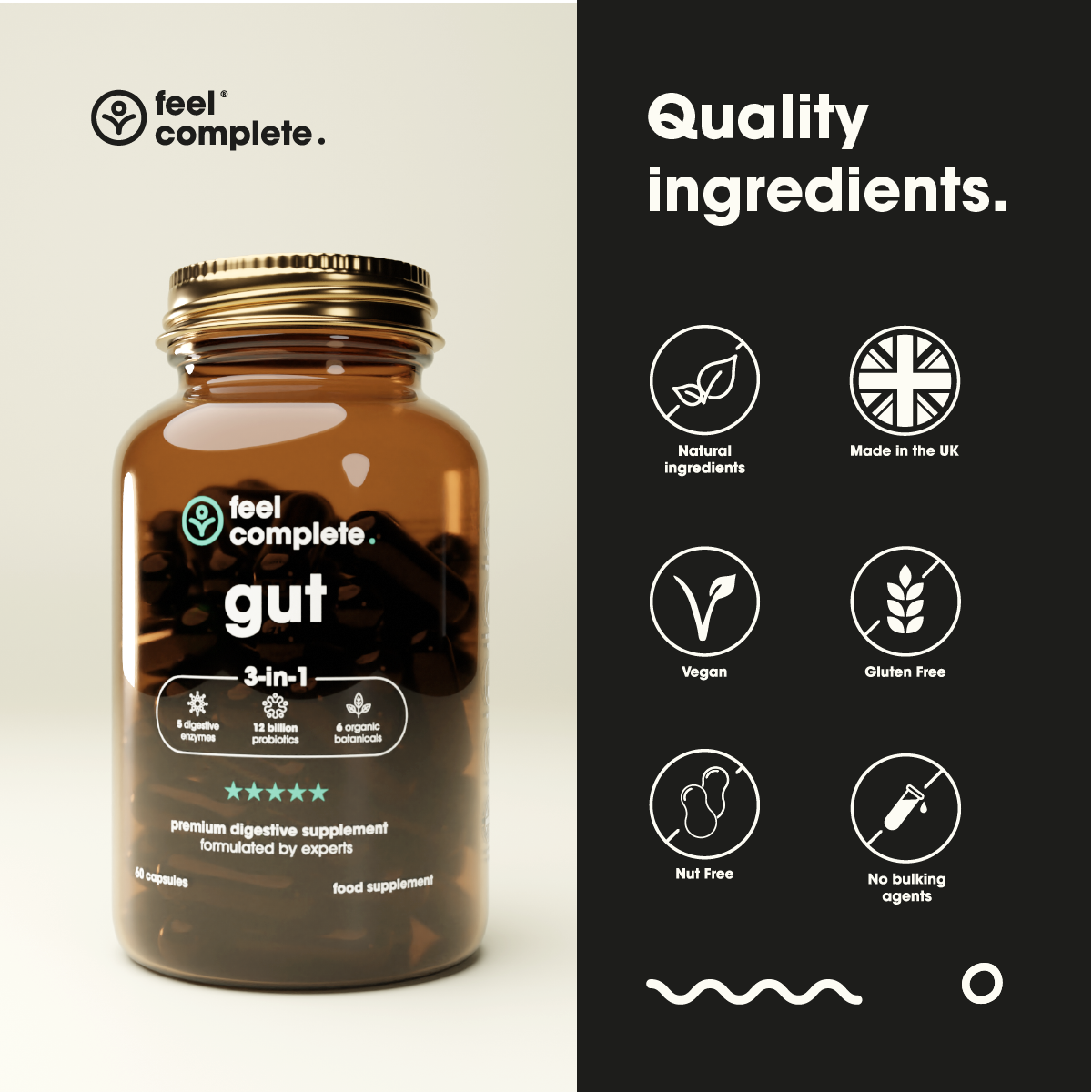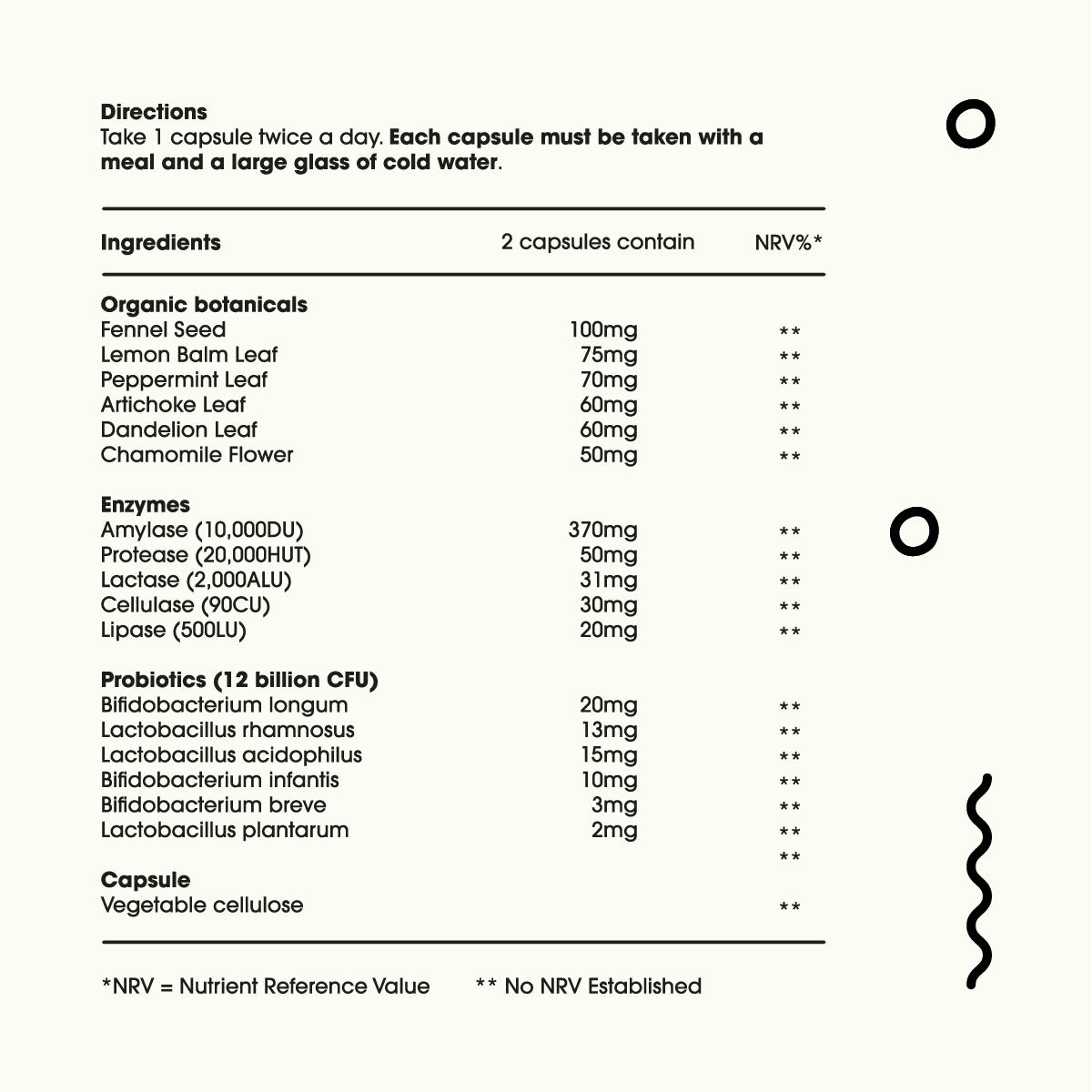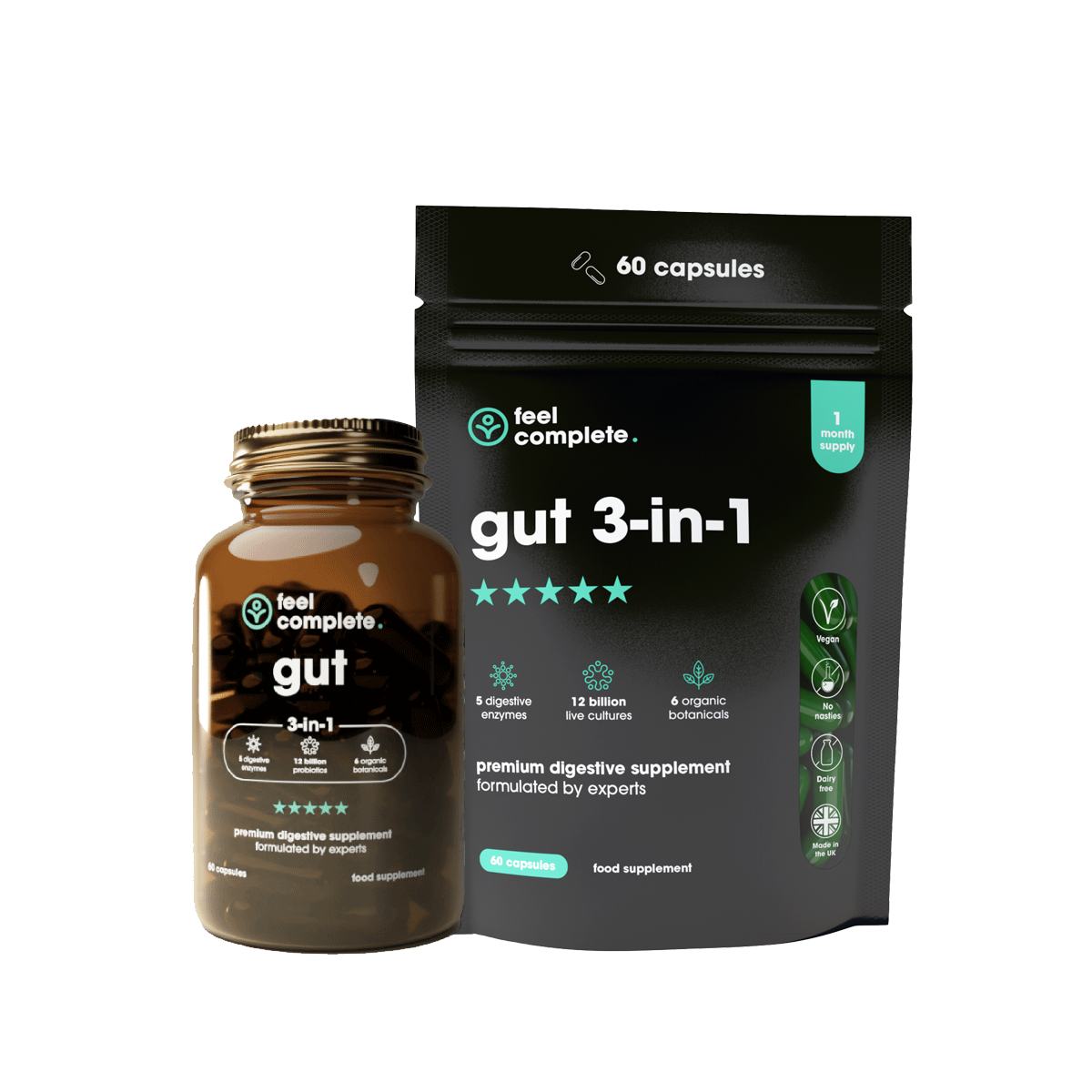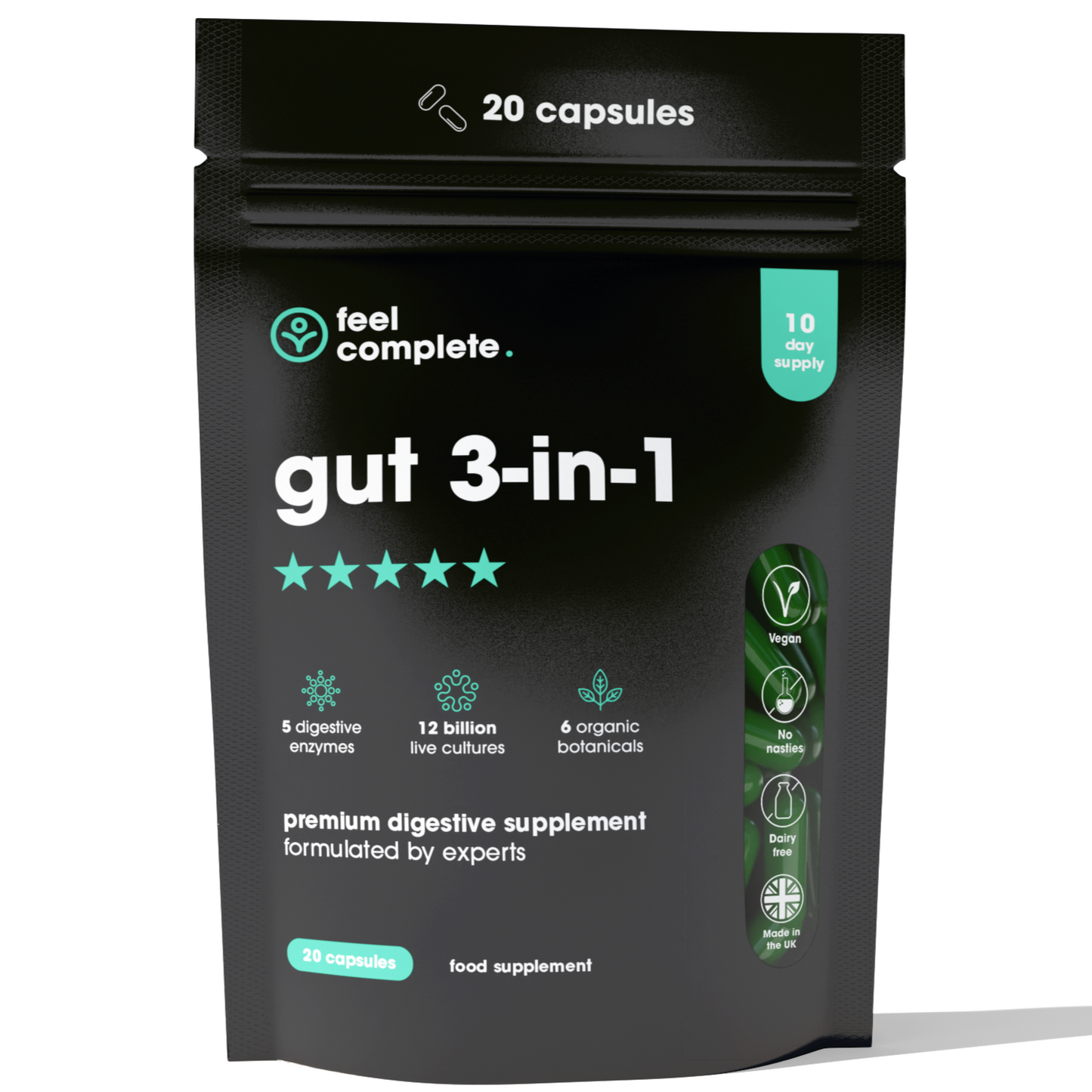IBS symptoms can at times be unpredictable, which makes this condition even more frustrating for those suffering from it. That said, we believe there's no better way to deal with your next IBS flare up than to take some steps beforehand.
The goal is to reduce your chances of experiencing the painful, uncomfortable and at times embarrassing symptoms associated with IBS symptoms.
So in this article, we will go through 7 ways you can avoid an IBS flare up. But before you read all these life-changing tips, let's briefly look at what IBS is and what causes IBS flare ups.
What is IBS?
IBS or irritable bowel syndrome is a chronic condition that's characterised by a collection of symptoms that mainly affect the digestive system. Though chronic, IBS symptoms come and go, and symptoms include:
- Bloating
- Cramping
- Constipation
- Diarrhoea
- A combination of constipation and diarrhoea
- Excess gas
- Occasional urgency to have a bowel movement
- Nausea
Another common IBS symptom is anxiety, which is normal considering that the gut and brain are connected. For some, the symptoms of IBS trigger their anxiety and for others, it's anxiety that triggers or worsens their symptoms.
Regardless of the stage of your IBS journey you're in, there are solutions that can help you improve your symptoms so you can start living more and worrying less.
Did you know that 3.2 million people in the UK are living with IBS? If you've been suffering in silence, now is the time to take control of your gut health. Speak to one of our nutritionists to see how diet and lifestyle changes can significantly reduce your IBS symptoms.
What causes an IBS flare up?
On some level, you know that your diet and lifestyle play a role in your IBS symptoms. Similarly, when you have an IBS flare up, the usual suspects could be behind your IBS flare ups.
But did you know that an IBS flare up can last hours, days, weeks or even months? Naturally, you want to do whatever you can to avoid these IBS flare ups. And this brings us to our topic today. So here are 7 things you can do TODAY to help you avoid your next IBS flare up.
One: Stay away from trigger foods
Foods that trigger an IBS flare up differ from one person to another. Having said that, there are what we can call as the “usual” suspects. These foods are problematic because they increase the risk of having an IBS flare up. IBS trigger foods include:
- Highly processed foods (e.g., cookies, crisps, sugary drinks, sauces, ice-cream, fast food, etc.)
- Legumes (beans, chickpeas, lentils, etc)
- Some fruits and vegetables (apples, pears, cherries, etc)
- Refined grains (cereal, white bread flour, pasta, etc)
- Dairy products
As you can see, that's not a short list. But you will be surprised at how avoiding these foods and drinks can improve your symptoms and reduce the chances of you having an IBS flare up.
Two: Drink the right fluids
Some beverages actually help your IBS symptoms while others are clearly bad news! So what you want to do is drink more of the ones that are good for you and avoid those that would trigger or worsen an IBS flare up.
For example, you can never go wrong with drinking water - and plenty of it. Not only is this good for relieving constipation but water also helps with digestion.
You can also make your own juices or smoothies at home with fruits and vegetables that your gut can tolerate.
Whatever you do, stay away from caffeinated drinks as they cause diarrhoea and carbonated drinks, as they cause gas. Alcohol is also a big no-no as it irritates the gut and triggers IBS flare ups.
Watch out our experts discuss IBS symptoms in this video:
Three: Manage stress
We know it's easier said than done but one of the best things you can do to avoid your next IBS flare up is to reduce your stress. Now, we're not saying that you should never experience stress. After all, stress is a normal part of life!
What we're saying, however, is that the problem is NOT acute stress but chronic stress. And if you're chronically stressed, your body and brain will suffer. Think about the “fight or flight” response when we experience stress. One of the functions that this physiological response disables is the digestive system!
So being chronically stressed means your digestive system is not functioning as it should. This is why managing stress can make a huge difference in your IBS symptoms.
Four: Medication
Most of us don't consider the role the side effects of medications play in our gut and overall health. A common culprit that can lead to an IBS flare up is the side effects of some widely used medications. These include:
- Antidepressants: Side effects include diarrhoea/constipation and stomach aches and indigestion
- Antibiotics: Stomach aches, diarrhoea and cramps
- Nonsteroidal anti-inflammatory drugs (NSAIDs): These over-the-counter painkillers are linked to stomach aches, diarrhoea and indigestion
You're obviously taking these medications for a reason but you want to be aware of how they impact your gut health. Antibiotics can be helpful but overuse destroys your gut microbiome and leads to the symptoms we've already mentioned. As for painkillers, then consider taking natural alternatives that don't have side effects.
Similarly, there are natural and safer alternatives to antidepressants that you may consider. If you're not sure, speak to your doctor or one of our nutritionists to help you find the right alternative for your needs.
Five: Eat more fibre
You've probably heard this countless times and it's true. If you want to avoid an IBS flare up, you want to do everything you can to add more fibre into your diet. For example, fruits and veggies, whole grains (such as barley, oats, black rice, millet, etc), and peanuts are all good sources of fibre.
Six: Keep a food diary
Keeping a food diary may seem like a waste of time but it's one of the best things you can do for your IBS symptoms. Not only can you document what you eat but you can also see how some foods may be connected to your IBS flare up.
For example, suppose you eat a particular food you haven't had in a long time. A few hours or days later, you start experiencing common IBS symptoms. If you have been keeping a food diary, you can right away see that you started experiencing a particular symptom after you ate that food.
Of course, it could've also been something else or a combination of things. But the more conscious you are of what you eat and don't eat, the easier it's for you to make connections between some foods and your IBS symptoms.
Seven: Move!
We kept the best for last! Movement, whether this is in the form of exercise like cardio or brisk walking, is an incredible and free way to avoid an IBS flare up. Since physical activity increases the blood flow to the digestive system, which in turn “massages” the food you eat along the digestive tract.
What does this mean? This means less bloating, constipation, and abdominal pain! But that's not all. Exercise, even if it's “just” a walk, eases stress, which as a result, improves your mood. In a study published by the American Journal of Gastroenterology, researchers found that exercise improves IBS symptoms. (1)
In other words, the more active you are, the happier your gut and of course, the happier you'll be!
Bottom line
Whether you regularly experience an IBS flare up or occasionally, know that there are things you can do today to improve your condition. Now, we're not saying that you can 100 percent avoid ALL flare ups caused by your IBS symptoms. After all, your gut needs time to heal.
What we're saying, however, is that the food and lifestyle choices you make can significantly worsen or improve your next IBS flare up. So choose wisely and feel the difference your choices make in your gut health and your life.
Need professional support with your IBS? Work with our gut experts to design your personal plan to kick IBS where it hurts! Start here






